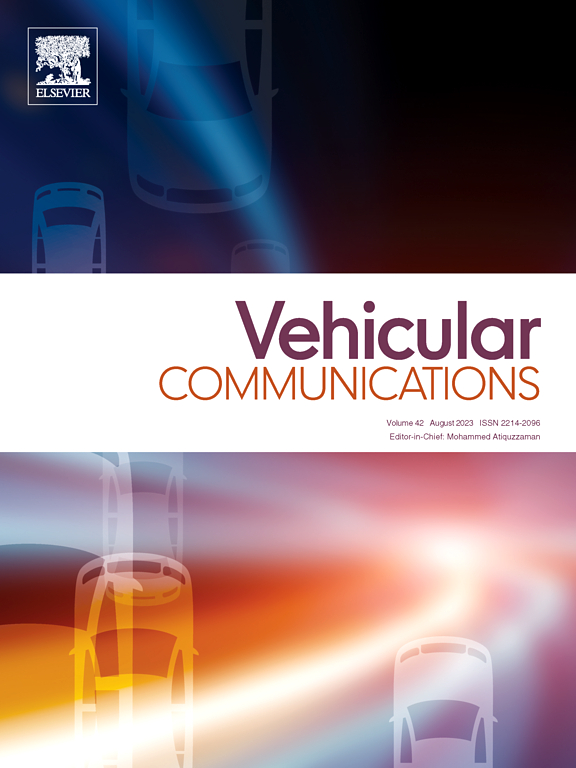Privacy-enhanced multi-region data aggregation for Internet of Vehicles
IF 6.5
2区 计算机科学
Q1 TELECOMMUNICATIONS
引用次数: 0
Abstract
Data aggregation is evolving into an extremely crucial role for facilitating decision-making in Internet of Vehicles (IoV). Multi-region data is a typical attribute of IoV, containing sensitive information and driving trajectories. However, the existing privacy-preserving schemes face problems such as regional statistics, messages integrity, and collusion attacks. In order to tackle this challenge, we propose a privacy-enhanced multi-region data aggregation (PRDA) scheme for IoV. Specifically, PRDA protects both sensing data and location as masked values by multi-secret sharing. We design regional vectors to generate mask keys using symmetric bivariate polynomial without interaction. In addition, vehicles spontaneously generate verifiable and aggregatable signature to ensure messages integrity in insecure communication networks. Batch verification of bilinear pairing can improve efficiency while resisting tampering attacks by malicious adversaries. Experiments demonstrate that as the number of regions increases, comparing with existing works, PRDA has lower communication overhead, and decreases computational cost by over 32.6%.
基于隐私增强的车联网多区域数据聚合
在车联网(IoV)中,数据聚合在促进决策方面发挥着极其重要的作用。多区域数据是车联网的典型属性,包含敏感信息和行驶轨迹。然而,现有的隐私保护方案面临着区域统计、消息完整性和合谋攻击等问题。为了解决这一挑战,我们提出了一种隐私增强的多区域数据聚合(PRDA)方案。具体来说,PRDA通过多秘密共享保护传感数据和位置作为掩码值。我们设计了区域向量,使用对称的二元多项式来生成掩码密钥。此外,车辆可以自发地生成可验证和可聚合的签名,以确保在不安全的通信网络中消息的完整性。双线性配对的批量验证可以提高效率,同时抵抗恶意攻击者的篡改攻击。实验表明,随着区域数量的增加,与现有工作相比,PRDA具有更低的通信开销,计算成本降低了32.6%以上。
本文章由计算机程序翻译,如有差异,请以英文原文为准。
求助全文
约1分钟内获得全文
求助全文
来源期刊

Vehicular Communications
Engineering-Electrical and Electronic Engineering
CiteScore
12.70
自引率
10.40%
发文量
88
审稿时长
62 days
期刊介绍:
Vehicular communications is a growing area of communications between vehicles and including roadside communication infrastructure. Advances in wireless communications are making possible sharing of information through real time communications between vehicles and infrastructure. This has led to applications to increase safety of vehicles and communication between passengers and the Internet. Standardization efforts on vehicular communication are also underway to make vehicular transportation safer, greener and easier.
The aim of the journal is to publish high quality peer–reviewed papers in the area of vehicular communications. The scope encompasses all types of communications involving vehicles, including vehicle–to–vehicle and vehicle–to–infrastructure. The scope includes (but not limited to) the following topics related to vehicular communications:
Vehicle to vehicle and vehicle to infrastructure communications
Channel modelling, modulating and coding
Congestion Control and scalability issues
Protocol design, testing and verification
Routing in vehicular networks
Security issues and countermeasures
Deployment and field testing
Reducing energy consumption and enhancing safety of vehicles
Wireless in–car networks
Data collection and dissemination methods
Mobility and handover issues
Safety and driver assistance applications
UAV
Underwater communications
Autonomous cooperative driving
Social networks
Internet of vehicles
Standardization of protocols.
 求助内容:
求助内容: 应助结果提醒方式:
应助结果提醒方式:


